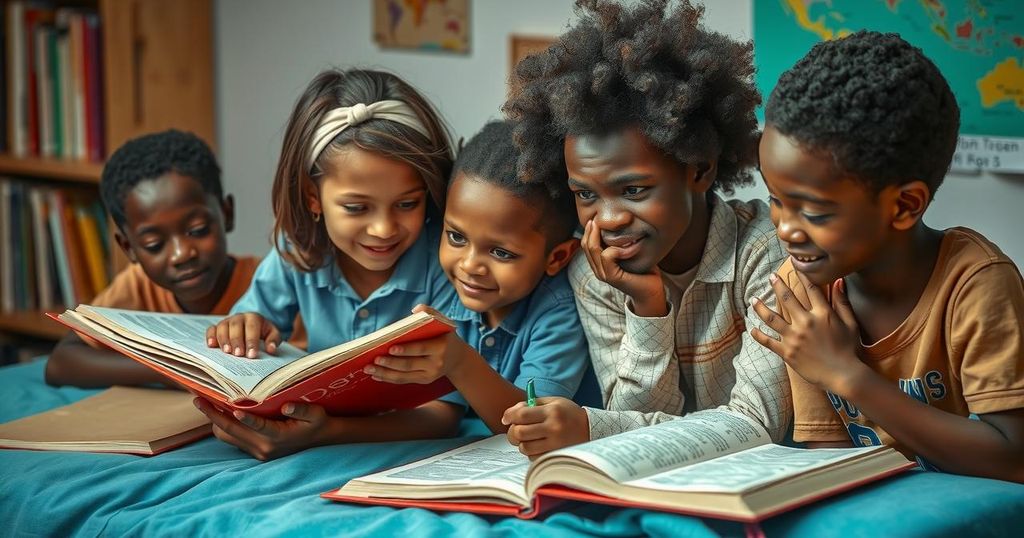Reviving Literature in the DRC: Mlimani’s Mission to Engage Youth with Books

In Goma, DR Congo, initiatives led by the Mlimani publishing house aim to rekindle interest in reading among youth by producing affordable literature that reflects Congolese culture. Community programs encourage group discussions around key texts, promoting intellectual engagement and addressing the historical lack of accessible local literature. The growing interest in reading and local authors signifies a hopeful shift in the region’s cultural landscape.
In the city of Goma, located in the eastern Democratic Republic of Congo, community efforts are underway to rekindle a passion for reading among the youth. Historically marred by conflict, this region has faced significant challenges in promoting local literary production. Recognizing the importance of books, a group of artists and activists, represented by the Mlimani publishing house, aims to make literature accessible and relevant to the younger generation by providing locally printed works at affordable prices.
For years, many writers believed that publishing quality could only be achieved in Europe, which led to a reliance on high-cost imports. Martin Lukongo, who runs a local print shop, emphasizes that the combined issues of power outages and a lack of resources necessitate sourcing materials from neighboring countries. Despite these obstacles, Mlimani has made strides in producing a variety of writings, with prices ranging from $5 to $10, making it feasible for many young people to afford literature.
Since its inception, Mlimani has expanded its catalog to include a diverse range of authors and genres that resonate with Congolese culture and experiences. Through strategic outreach efforts, including group reading sessions in schools and cultural centers, Mlimani works to foster interest and discussions among potential readers. As law student Steven Sikubwabo points out, these gatherings facilitate intellectual engagement on pertinent issues.
Participants often lament the lack of emphasis on African history in their educational systems, further driving the conversation towards the need for a culturally responsive literary framework that speaks to their heritage. Inspired by these gatherings, local interest in reading and writing continues to grow, signaling a shift towards a more vibrant cultural discourse within the DRC.
In conclusion, the push for literary engagement among the youth in the DRC is a commendable endeavor that not only seeks to increase access to books but also aims to nurture a community that values its cultural narratives. Mlimani and similar initiatives are vital for empowering young Congolese readers and writers, highlighting the importance of accessible education and self-representation within Africa’s literary landscape.
The Democratic Republic of Congo (DRC) has long faced significant socio-economic challenges, with an extended history of conflict impacting its cultural landscape. This context has contributed to a perception of reading as a luxury rather than as an essential pursuit, particularly in regions with limited resources for publishing and accessing literature. The recent initiatives to promote local publishing and reading among youth aim to address these deficits, creating a platform for young Congolese authors and fostering a culture of intellectual engagement. By making literature more relatable and accessible, this movement seeks to reshape the narrative surrounding reading in the region, emphasizing its importance in personal and collective development.
The efforts to promote a reading culture among youth in the DRC exemplify the potential for local initiatives to overcome significant barriers to access and affordability. By providing affordable literature that reflects local experiences and fostering community engagement through discussions, organizations like Mlimani are crucial in transforming the literary landscape. This commitment not only enhances cultural awareness but also empowers the next generation to engage with their history and future meaningfully.
Original Source: www.france24.com








